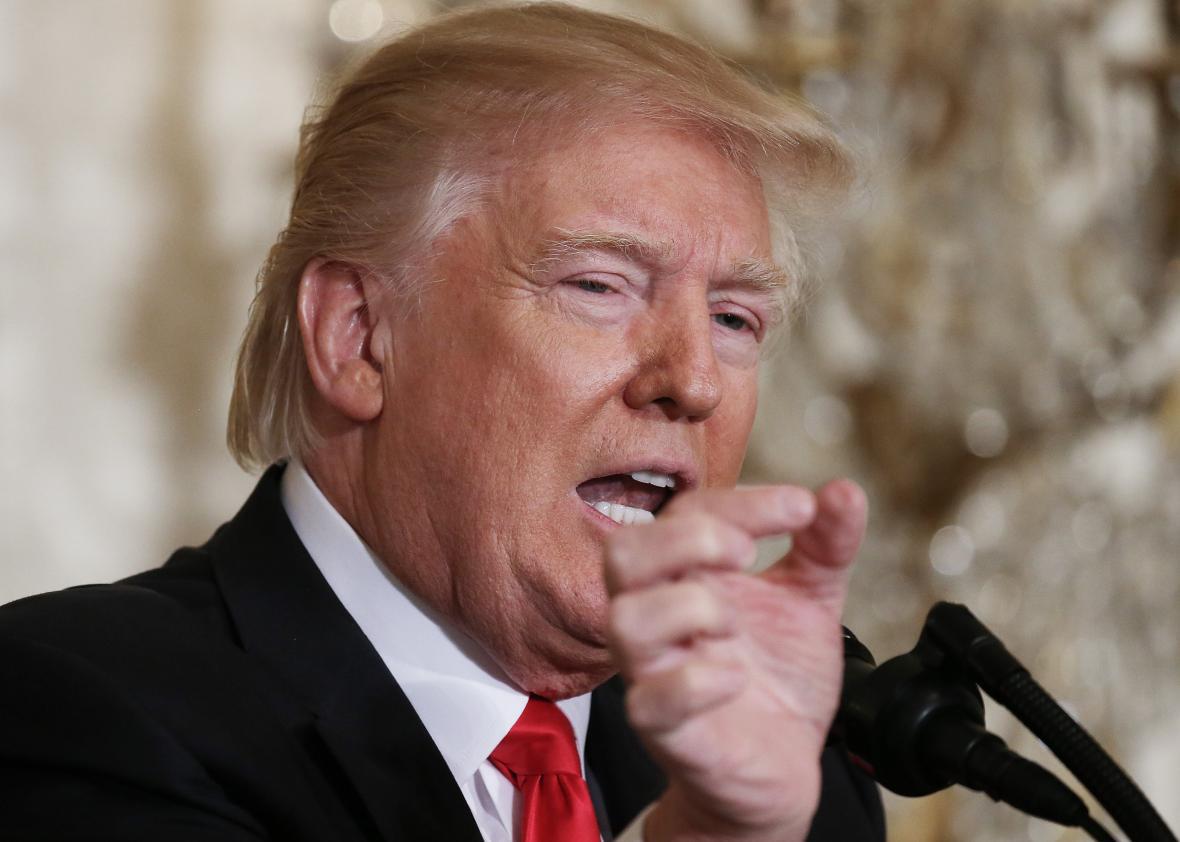“I love WikiLeaks!” then-candidate Donald Trump said at a campaign rally in October. “It’s amazing how nothing is secret today when you talk about the internet.”
Indeed, it’s hard to keep secrets these days, and especially hard to do so when you’re managing a bureaucracy of several million people. Since assuming that managerial role, Trump has taken a less flattering approach toward leaks, especially those that expose lies from himself or his team. It was press leaks of intercepted communications between ex–National Security Adviser Michael Flynn and the Russian ambassador that did Flynn in—and, if you buy the line of Trump and his suck-ups in Congress, those leaks are the only problem to see here. Very little concern from the White House is being paid to the news value of those leaks: information that proved Flynn to be lying, either in conversations with the press or to his superior, Vice President Mike Pence, and which resulted in Trump requesting his resignation. It was illegal for officials with access to that intelligence to share it to the press, but it was legal for the press to publish it to serve the public good, and Trump is tacitly acknowledging it was a public good if he’s the one deciding that Flynn had to go. This, unfortunately for Trump, is how things are supposed to work.
The man in the White House does not see it this way. It is natural for presidents to be upset when classified information appears in the press. President Obama certainly wasn’t a fan, and his administration prosecuted leakers with aggression, to major press criticism. It is a horse of a different color to lump the press in with the leakers as complicit in the illegal act as a continuation of one’s war against the press, and to turn the public further against the press as malevolent and untrustworthy.
“The first thing I thought of when I heard about it is, how does the press get this information that’s classified?” Trump said during his press conference on Thursday. “How do they do it? You know why? Because it is [an] illegal process, and the press should be ashamed of themselves.”
Another illegal process was the allegedly state-sponsored hacking of the Democratic National Committee and John Podesta’s emails during the 2016 presidential campaign. It was illegal to do this. Though some may disagree with WikiLeaks perceived political aims or lack of discretion in choosing what to publish, it was not illegal for them to publish, and it was not illegal for news organizations to report on which emails they deemed to have news value.
Trump distinguished between the material published by his beloved WikiLeaks and the leaked information that brought about Flynn’s ouster this way: “In one case you are talking about highly classified information,” he said, and “in the other case you are talking about John Podesta saying bad things about the boss.” That is a fair point to lay out, if you ignore all of the questions swirling around Trump’s team and their possible coziness with Russian officials, which has been subject to FBI investigation. (Fairer than another assertion he made in the press conference, which is that WikiLeaks doesn’t reveal classified information. Someone should inform the president that this stuff is their bread and butter.) In terms of news value, though, there is more in the revelation that the president’s national security adviser has been lying left and right—and could thus be possibly open to blackmail by a foreign government—than there is in your average John Podesta email. The press shouldn’t be “ashamed” of exposing this.
The reasonable response from a president who wants to get to the bottom of the constant, damaging leaks would be to stop running such a horror show of an administration, and to encourage those working underneath him to stop lying all the time. It would be in his interest to stop lying so much, too.
